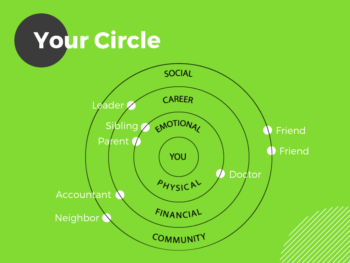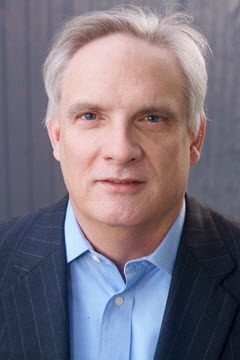
Episode 016: Roxy Greninger–Culture Consultant and Brightest Part
Category:introversion,Introverted Leadership,introverts,Leadchange,Leadership,PodcastPodcast: Play in new window | Download
Subscribe: Spotify | Amazon Music | iHeartRadio | Podchaser | TuneIn | Deezer | RSS
Episode 016 Show Notes: Roxy Greninger
Introduction

Key concepts
- Changing a business culture
- Re-engineering content
- StrengthsFinder
- Being intentional
- Being the brightest spot of someone’s day
Quotable
You need to be intentional as an organization to drive your culture. Our purpose of our culture team is to help attract and retain the best and the brightest talent.
“We pass these things on.” And I said, that’s exactly what happens in–in culture, in general. We pass these rules or these norms on to each other because we teach each other. And that’s exactly what happens in an organization.
Our company has laid out values and behaviors that aren’t just words on a wall. They’re not–it’s not a poster in the break room, right? These are things that we live and breathe every day
My “why,” my vision and all that makes me happy–is being the brightest part of someone’s day. And I know that sounds corny, but like–and it’s not a difficult goal to reach–but at the end of the day, if I can look backwards and say I made someone smile today, or I brought some relief to someone, or I helped someone, or, you know “fill in the blank,” that I help influence or positively impact that person in some small way, then I’ve fulfilled my day.
I feel like it’s very important for us to recognize those strengths and leverage them, whether it be for your work or your fulfillment. If you’re missing one of them, you’ll notice it. You’ll not feel that you have that connection or that purpose.
Resources or Products Mentioned in this Episode
- Society for Technical Communication
- STC Rochester Spectrum Conference
- Strengthsfinder
- Daniel Coyle, The Culture Code: the Secrets of Highly Successful Groups
Links
- Follow Hope for the Introvert on Twitter
- Like my page on Facebook
- Support me on Patreon
- Get swag for Hope for the Introvert and Introverted Leadership at Zazzle
Transcript
Ben: Joining us today is Roxy Greninger. Roxy Works for Excellus Blue Cross Blue Shield as a Culture Program Consultant. Roxy describes herself as Texas-born, Oregon-raised, and New York-refined.
Ben: Hi Roxy. I’m so excited you’re joining us today. We’ve had some fascinating and far ranging conversations and I look forward to seeing where we go today.
Ben: So you are a culture program consultant, which sounds like a totally exotic and intriguing role to have in a company. I suspect it’s not quite as exotic as it sounds. Could you tell us a little bit about the cultural program?
Roxy: Sure. There’s a few of us and what’s unique about the three of us with that title is that we are all tasked with varying things–varying projects and various work–which is just great, right? And anytime you have multiple people doing the same role, you should always look to leverage their strengths. And that’s just what our leader has done, but the culture program consultant by design–I think more organizations are finding themselves with some sort of a culture team or culture leader, someone who’s focus is on the culture, and it’s because you need to be intentional as an organization to drive your culture. Our purpose of our culture team is to help attract and retain the best and the brightest talent.
[bctt tweet=”You need to be intentional as an organization to drive your culture. Our purpose of our culture team is to help attract and retain the best and the brightest talent. Roxy” username=”hopeintrovert”]
Roxy: And it’s not just about attracting the talent, because once you get them in the door, they need to stay there. So that’s the retain part, right? So we see a lot of flashy companies, really big companies writing books and kind of paving the industry and they do fun things and you see Ping Pong tournaments, and water slides, and all these really wacky things. And so people think that it’s just a lot of fun and it’s a lot of frivolity–I guess if that’s even a word–frivolousness, and that’s not what it is. It’s really about helping develop people and know themselves and reach the fullest potential. Developing the strategy for the organization, working with the leaders, right, to make sure that they’re setting the example for the rest of the organization and demonstrating the values and behaviors that the organization desires. Right? So for our company, we have a mission, we have a vision just like every other company and we have a strategy to achieve that mission.
Roxy: And one of our strategies is to motivate the workforce. And that’s–that’s my job all day, right, is what needs to be done to motivate the workforce. There’s part of it is a little dance around psychology. It’s important that people feel that they have some control, that they have decision making, and that they’re heard. So our company has laid out values and behaviors that aren’t just words on a wall. They’re not–it’s not a poster in the break room, right? These are things that we live and breathe every day and our culture has changed a lot in the 13 years I’ve been with the organization. It’s really evolved in a positive way. Thirteen years ago I probably honestly only stuck around because the benefits were good, right? Then as the focus, the intention on culture has come full circle, we’ve heard more improvements. People are happier. They’re showing up to work with better ideas. They can be more innovative.
[bctt tweet=”On culture–Company values and behaviors that aren’t just words on a wall. They’re not a poster in the break room, right? These are things that we live and breathe every day. Roxy” username=”hopeintrovert”]
Roxy: We have a huge focus now on diversity. That’s another department. We work closely with them. But that’s another major piece of it, is every voice needs to be heard–diversity of thought, diversity of your experiences. We all have unique experiences and we have to recognize that. So there’s a whole team that is focused on diversity of our employees and the diversity of thought, so that we can innovate. And yeah, it is–I think of it–it is kind of an exotic title, but it’s very much project management and learning and development, I think that I bring to the team, I do a lot of readings. I love to re-engineer content. Of course, I credit and cite the source, but I like to re-engineer it in a way that the average person can receive it, and they don’t have to spend as much time reading all the books or watching all the videos, which is something that I enjoy doing. So it’s a happy balance.
[bctt tweet=”I love to re-engineer content. Of course, I credit and cite the source, but I like to re-engineer it in a way that the average person can receive it, Roxy” username=”hopeintrovert”]
Ben: And I, and I may or may not be right about this at all, but is the pace of change? You said it had changed a lot in the 13 years. And I’d also mentioned that sounds like an exotic position, but it sounds like–it takes a lot of time for change, usually. Correct?
Roxy: Oh, absolutely! It’s not something you can be impatient about and… I just did a workshop for our college interns over the summer and the way that I explained it is–culture is contagious, so you don’t just wake up one day and decide you’re going to change your culture. And the story that I told them or the, the, the challenge that I asked them during the workshop was I, I had a lab coat on and I, you know, had some colored waters in some beakers and made it look more like a science room. But I asked them, does anyone know why? First of all I did like a poll–Does everyone know that you don’t wear white after Labor Day? And they all at least had heard of it. So that was good. And then I said, does anyone know why you don’t wear white after Labor Day?
Roxy: And nobody knew. And that was kind of surprising because, you know, with the different videos and things that pop up on Facebook, we all kind of know these, these fun little trivia these days. So fortunately for me, no one knew the answer, so I said, “Well, it actually started after the Civil War, when there was all these self-made millionaires popping up everywhere, and the high society ladies of old money decided that they wanted a way to identify the new money so that they could shun them.” And so the story goes that they came up with these fashion rules so that they could spot the new money and shun them. So basically one of the rules was you don’t wear white after Labor Day and they came up with that rule because it’s just normal to wear white in the summer.
Roxy: It’s a lighter color, but they made it a rule. So if you wore a white gown to a Christmas ball or gala, they would snub you. They would shun you. And so I said, “That was almost a 100 or over 100 years ago. How is it that something that was so malicious in nature that was created back then, still a thing now that we embrace and teach our children? And the hands started going up and you know, people were like, oh, because I said, “Who told you?” And they said, my grandmother and my mother, my whoever. And I said, “We pass these things on.” And I said, that’s exactly what happens in–in culture, in general. We pass these rules or these norms on to each other because we teach each other. And that’s exactly what happens in an organization.
[bctt tweet=”We pass these things on. That’s exactly what happens in culture, We pass these rules or these norms on to each other because we teach each other. And that’s exactly what happens in an organization. Roxy” username=”hopeintrovert”]
Roxy: So when you think you’re helping someone by saying, “Oh, you have to wear–Ladies, you have to wear nylons in our organization.” Well, no! There’s actually no corporate policy that says you have to wear nylons. But this is one of those things that in some areas, the employees here were under the impression that they had to wear nylons with a skirt. And it’s just funny because you have these little pockets where people believe, well, that’s what you have to do. Well, who gets to decide what you have to do? Is it a corporate policy or is it a “that’s what we’ve kind of been doing for awhile?” So yeah, we really just asked the question, “Who gets to decide? Fill in the blank and challenge those norms. So, it could be as little as meeting culture, Do you put an agenda on your meeting invite? It could be different depending on which team you work in and what leader you have or what coworkers you have. So these things don’t change easily. I can’t just wake up one day and say, “Hey organization. We’re all gonna do this.” Sometimes we can. Sometimes things are mandated and we have to do them. But the way that we behave and treat each other and some of these things that we’ve accepted into our norms, are much more difficult to challenge.
Ben: So how would you go about measuring success? How do you? I mean, we’re talking about–some things are overnight things because they’re mandated, but many of these things seem to take a good amount of time. And what do you do trying to determine if your efforts are successful?
Roxy: Yeah! The organization has a survey. We use a vendor that helps us measure, using a survey assessment–measure the feedback from the employees. And we asked the same questions year after year and we gauged the responses. So for that, it’s a numbers answer. Personally, I like to read between the lines and really understand the feedback that’s going along with those numbers, because it’s not about the numbers. It’s about the people, right? So we have the number that’s helpful. But for me it’s–it’s how do I feel? Right? And it’s really hard to get a measure on how do I feel. There could be something going on. If I come to work and I’m working through a frustration with a particular work group, depending on who I come in contact with. It varies from person to person and rightly so. It should.
Roxy: So, yes, the organization does use the assessment, but for me personally in my role, I like to observe and I like to listen and I like to just pay attention, which again, I think is one of those things where introverts just excel at because I can be the one in the room leading the conversation and jumping in and giving feedback, but I can also very easily be the person in the room who’s sitting back and watching the body language and reading between the lines and listening to somebody give an idea and then shut down because maybe their idea was rejected and they didn’t feel that they wanted to really press that idea or share the backup context that would help others see their idea. So, I’m kind of more of the observer and I’m weaving in the development pieces that go along with that.
Ben: Well, that’s awesome. So you mentioned that your strength of being able to listen and I think observe–I mean that is one of the strengths of introverts in general are supposed to be, and clearly, talking about how you’re leveraging that in terms of the culture change work. What else do you believe to be your biggest strengths? So how are you leveraging the StrengthsFinders?
Roxy: I think when I first found out what they were, it was a kind of disbelief. I didn’t quite understand what they were. And then over time, as somebody gave me a little plaque and they were sitting on my shelf, I’m at my desk and over time, as I would see them on a daily basis, and I would look back to what the definitions were, I started to realize that I had tendencies that explained why those were my strengths. So the F and I think by order, the first strength is Strategic. For me, when I come up with ideas or when I give answers to solve problems, it’s not always a fix for today. It’s a longer term fix or it’s something where I’m thinking I’m trying to pull in all the information that I have to make the smartest decision or the decision that’s gonna enter you no longer test of time.
Roxy: For me, the strategic definitely shows up, and sometimes I have to warn people, “Just FYI, I’m strategic. Sorry, if I’m jumping ahead.” And then also Learner and Input are two of my strengths. I’m so Learner. You’ve probably heard me talking about how I love to read. I average a book a week, and I just can’t get enough, right? I love learning new things. I find myself putting myself in awkward, uncomfortable, new positions in order to learn new things. And the Input, I just want to gather as much input as I can about something. And that’s part of the Strategic, a strength, the need there to fill all the input in order to make those decisions, But it’s also part of the Maximizer. So that’s another strength, once I learn all this content and I pull in all this input, I want to be able to maximize it.
[bctt tweet=”I love learning new things. I find myself putting myself in awkward, uncomfortable, new positions in order to learn new things. Roxy” username=”hopeintrovert”]
Roxy: I want to be able to tell everyone about it and help them connect with it. And I just gave away the fifth strength which is Connectedness. And so I do–I see connection in everything and value in everything. And when I have that connection and that value in everything, it’s inspiring, it’s motivating, it’s uplifting. So I try to see the connection or value in every interaction and something–I actually just started this week. A few weeks ago I had recommended to someone I was talking to, to start a gratitude journal, and that’s a popular thing. A lot of people are doing it. I tried it myself and it just–the well kept running dry, right? And it sounds horrible, but it was more of a, at the end of the day make sure you do your gratitude. And I was like, “Oh, I’m thankful for my family.” It was kind of growing repetitive, but this person had a specific need and she was feeling really down, and I said, “Hey, have you tried this?”
Roxy: And so I was thinking about it and I was thinking back to me, back to my “why,” my vision and all that makes me happy–is being the brightest part of someone’s day. And I know that sounds corny, but like–and it’s not a difficult goal to reach–but at the end of the day, if I can look backwards and say I made someone smile today, or I brought some relief to someone, or I helped someone, or, you know “fill in the blank,” that I help influence or positively impact that person in some small way, then I’ve fulfilled my day. Like that’s it, right? So I shifted the journal from Gratitude to “That’s my Purpose.” And if I–and any goal–this is my recommendation to anyone. If you have a goal or something you’re trying to accomplish, if you can dedicate that much time every day towards that goal, you will reach that goal.
[bctt tweet=”My vision and all that makes me happy–is being the brightest part of someone’s day. Roxy” username=”hopeintrovert”]
[bctt tweet=”At the end of the day, if I can look backwards and say I made someone smile today, or I brought some relief to someone, that I help influence or positively impact that person in some small way, then I’ve fulfilled my day. Roxy” username=”hopeintrovert”]
Roxy: And so for me it was, it was just a happy reminder of if you look backwards on your day. You’re going to see that you’re naturally helping. You’re naturally doing these things, bringing some sort of positive light into–anyone, whether it’s personal, family, work, anything–it could be the cashier at the register for all I know, if I just smile and say, Have a good day.” And they perk up. That’s–that’s awesome for me. As I started doing that journal and I found while journaling, the strengths were shining through in those examples again, and I was like, “Whoa! There it is again–those, those strengths.” That connection, finding myself at a place for a reason.
Roxy: Maybe I went to the estate sale and didn’t buy anything. And someone might look at that and say, “Oh, what a waste of time. You went there, you spent the money on the gas, and you didn’t buy anything.” Well, I like to look at the actual connection I had. Someone there was moving a table and nobody was helping her. So I offered to help and she said, “I’m 75 years old. I don’t know what I was thinking by trying to carry this table.” And that was it. That was that little interaction. We put the table in her car and she left, and I heard her telling someone on her way out that, “Oh, that nice young lady. They’re at the end of the line, helped me with the table.” Of course, I don’t know why no one else helped her, but that was it. Like I was meant to be there for that purpose and that was the brightest part of my day. But, I feel like it’s very important for us to recognize those strengths and leverage them, whether it be for your work or your fulfillment. If you’re missing one of them, you’ll notice it. You’ll not feel that you have that connection or that purpose.
[bctt tweet=”It’s very important for us to recognize your strengths and leverage them, be it for your work or your fulfillment. If you’re missing one of them, you’ll notice. You’ll not feel that you have that connection or that purpose. Roxy” username=”hopeintrovert”]
Ben: What’s interesting is that you talked about “at the end of the day.” My thoughts immediately leapt to the song in Les Miserables, which talks about “At the end of the day, you’re another day older,” but it’s almost all negative. It’s like there’s nothing. It’s just kinda the end of the day. It talks about “one day less to be living.” It’s not a positive song. But to hear you talking about this, it’s such a different and refreshing way to approach life in terms of you go to an event, you go to something that says an estate sale. You didn’t see anything you wanted to buy, but you found a way to have an impact on someone’s life. And I think that you have a gift there that many of us–it just doesn’t necessarily even occur to us. And “Oh, I went to the sale, I didn’t find anything and somebody was struggling with a table, and I should have helped them with the table” sort of thing, instead of jumping up there and making a difference for someone.
Ben: And I think this idea of being the brightest part of someone’s day is–it’s pretty amazing and it’s pretty humbling when you’re able to do that as well. So I think it’s a very, very cool thing. I’m always struck when I talk with you about how intentional you are in the way you approach these various things. We were talking briefly last week even in terms of ensuring that you’re exposing yourself to musical genres that you don’t really prefer, but you want to understand why other–why they’re popular and why certain songs that people appreciate them and I just find it really interesting because you have this intentionality that I don’t honestly believe that most of us do. I think many of us kind of go through our day and we look back on our day and well, it was another day, but the idea of really not–it’s not–you’re not talking about being the bright spot of one person’s day. You’re talking about being the bright spot of each person that you encounter during the day and it’s such a different credo in a sense of a way to live. Then I think it’s a very positive, obviously a positive example for us.
Extras
Organizational culture is a big deal and can have a direct impact on innovation. I read Daniel Coyle, The Culture Code: the Secrets of Highly Successful Groups earlier this year as part of the Next Big Idea Book Club (10% off subscription). I highly recommend both! Ben















